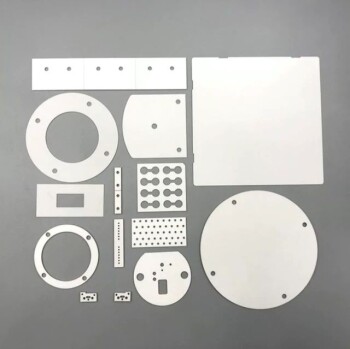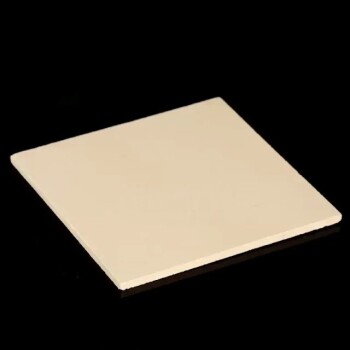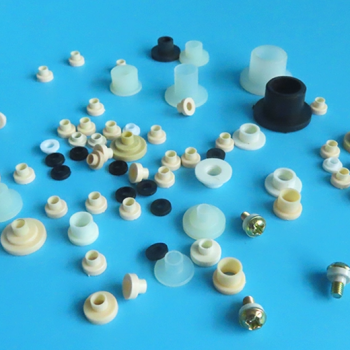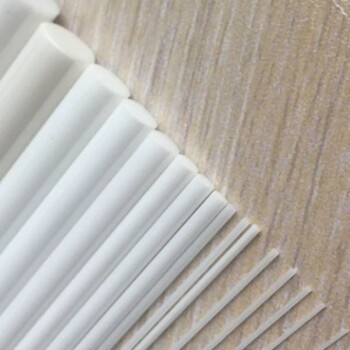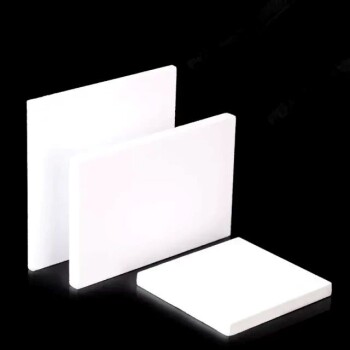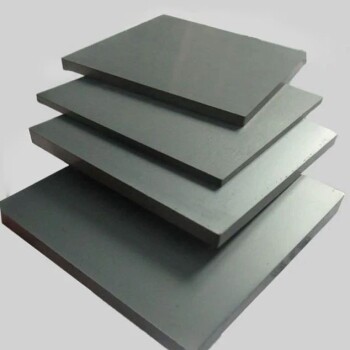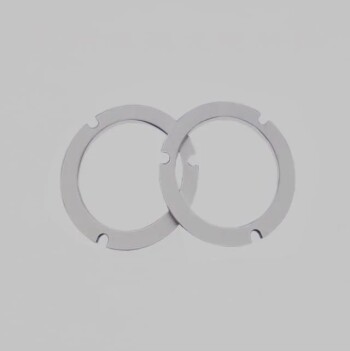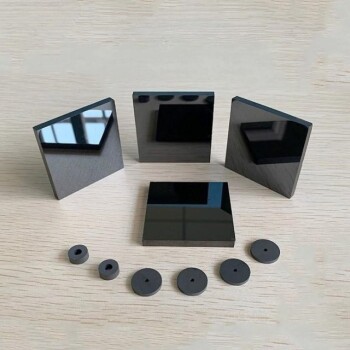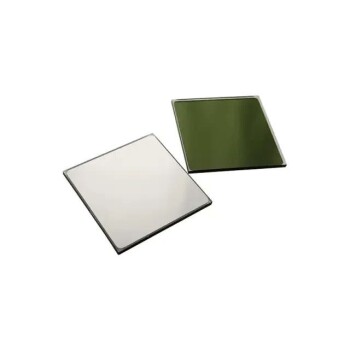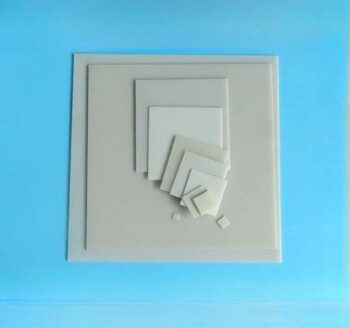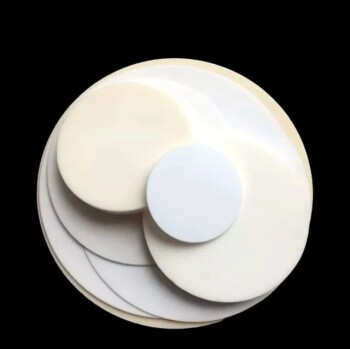Yes, zirconia is considered one of the most biocompatible materials available in modern dentistry. Its excellent biocompatibility stems from its nature as a chemically inert ceramic, meaning it does not corrode or release reactive substances into the body. This makes it an exceptionally safe and stable choice for long-term dental restorations.
The question is not whether zirconia is biocompatible—it is—but why its unique combination of chemical stability and physical strength has made it a superior material for patients concerned with long-term health and durability.
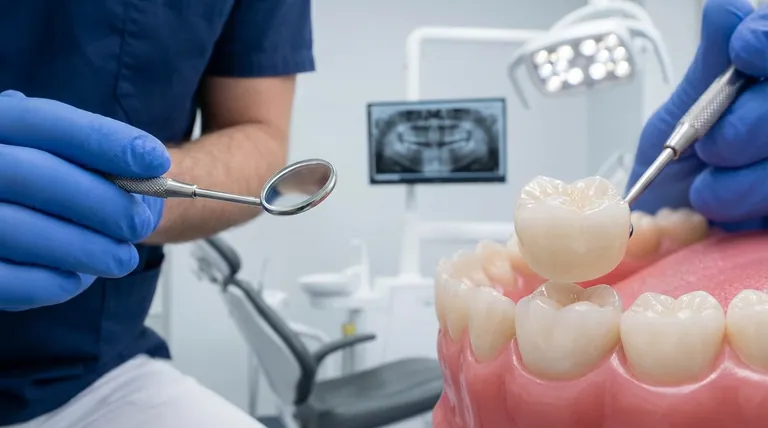
What "Biocompatibility" Means in Dentistry
To understand zirconia's value, we first must define what a truly biocompatible material does. It goes beyond simply being non-toxic.
Defining the Ideal
A biocompatible dental material should not cause any adverse local or systemic reactions in the patient. This means no allergic responses, no inflammation of the surrounding tissue, and no release of harmful ions over time.
The Problem with Traditional Materials
For decades, Porcelain-Fused-to-Metal (PFM) crowns were the standard. However, the metal alloys used in their base—often containing nickel, cobalt, or other metals—can cause allergic reactions in sensitive individuals.
These metals can also corrode slightly over years, sometimes leading to a dark, unsightly line at the gumline (gingival margin).
Why Zirconia Excels in Biocompatibility
Zirconia, or zirconium dioxide (ZrO2), is a ceramic that addresses the core weaknesses of older, metal-based restorations.
Chemical Inertness
Unlike metals, zirconia is a bio-inert oxide that does not undergo corrosion or oxidation in the body. It does not release particles or ions, eliminating the risk of chemical leakage that can cause tissue irritation.
Extremely Low Allergic Potential
Documented allergic reactions to dental zirconia are exceptionally rare. This makes it a premier choice for patients with known metal sensitivities or those who wish to avoid introducing any potentially allergenic materials into their bodies.
Positive Tissue Response
The gum tissue (gingiva) around a zirconia crown tends to remain very healthy. Its smooth, highly polished surface is resistant to plaque accumulation, which reduces the risk of inflammation and promotes better long-term periodontal health compared to rougher materials.
Low Thermal Conductivity
Zirconia does not conduct heat or cold well. This is a significant benefit for patient comfort, as it insulates the natural tooth from temperature shocks, reducing the likelihood of sensitivity after the crown is placed.
Understanding the Trade-offs and Considerations
No material is perfect for every situation. Being a trusted advisor means acknowledging the trade-offs involved with even a superior material like zirconia.
The Hardness Factor
Zirconia is significantly harder than natural tooth enamel. While this makes the crown itself incredibly durable and resistant to chipping, it can pose a risk of wear to the opposing natural tooth it bites against.
The Critical Role of Polishing
This risk of wear is almost entirely mitigated when the zirconia crown is expertly shaped and highly polished by the dental laboratory and dentist. A smooth, polished surface minimizes friction and protects the opposing teeth, making professional execution a critical factor.
Aesthetics of Different Zirconia Types
Early forms of zirconia were extremely strong but also very opaque, making them look less natural than other ceramics. However, modern formulations like translucent zirconia and multilayered zirconia offer excellent aesthetics that can convincingly mimic the appearance of natural teeth, even for the front of the mouth.
Making the Right Choice for Your Goal
Your specific goal will help determine if zirconia is the optimal material for your restoration.
- If your primary focus is eliminating metal allergy risk: Zirconia is an ideal, metal-free solution that offers peace of mind and excellent biocompatibility.
- If your primary focus is maximum durability for a molar: A monolithic (solid) zirconia crown is arguably the strongest and most long-lasting restoration available for high-stress areas.
- If your primary focus is the best possible aesthetics for a front tooth: Modern translucent zirconia is an outstanding option, though you should also discuss other advanced ceramics like lithium disilicate with your dentist to match your specific needs.
Ultimately, selecting zirconia is a decision rooted in prioritizing long-term health, safety, and remarkable durability.
Summary Table:
| Feature | Zirconia Crowns | Traditional PFM Crowns |
|---|---|---|
| Biocompatibility | Excellent (Bio-inert, no ion release) | Good (Potential for metal allergies/corrosion) |
| Allergic Potential | Extremely Low | Possible (Nickel, Cobalt alloys) |
| Tissue Response | Promotes healthy gums, low plaque adhesion | Risk of dark gumline, inflammation |
| Durability | Extremely High, chip-resistant | High, but metal base can show over time |
| Aesthetics | Excellent (Modern translucent/multilayered types) | Good, but metal can affect translucency |
Ready to ensure the highest level of biocompatibility and durability for your dental restorations?
At KINTEK, we specialize in providing top-tier dental lab equipment and consumables that empower professionals to create precise, long-lasting zirconia crowns. Our solutions help you achieve the perfect balance of strength, aesthetics, and patient safety.
Contact us today to learn how our products can support your practice in delivering superior, metal-free dental care.
Visual Guide
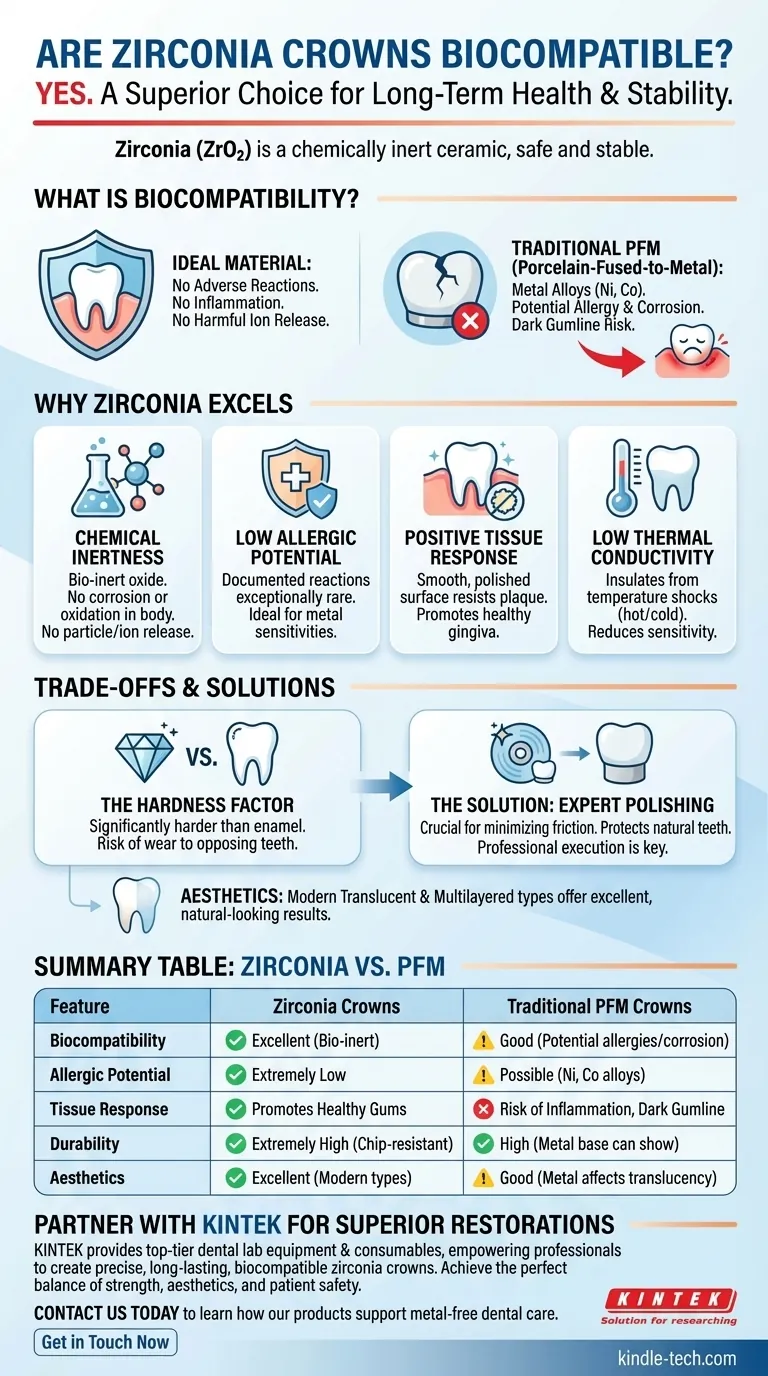
Related Products
- Custom-Made Alumina Zirconia Special-Shaped Ceramic Plates for Engineering Advanced Fine Ceramics Processing
- Precision Machined Yttria Stabilized Zirconia Ceramic Plate for Engineering Advanced Fine Ceramics
- Zirconia Ceramic Gasket Insulating Engineering Advanced Fine Ceramics
- Precision Machined Zirconia Ceramic Ball for Engineering Advanced Fine Ceramics
- Engineering Advanced Fine Alumina Al2O3 Ceramic Rod Insulated for Industrial Applications
People Also Ask
- Why are porcelain fired under vacuum? To Eliminate Porosity for Superior Strength & Translucency
- Can ceramic crowns be repaired? A Dentist's Guide to Assessing the Damage
- What can all-ceramic restorations be used for? Complete Guide to Modern Dental Solutions
- What is the strongest dental ceramic? Zirconia Leads in Strength, But Is It Right for Your Case?
- What is a porcelain furnace in dentistry? The Key to Creating Strong, Aesthetic Dental Restorations
- What is zirconia sintering? The Key to Durable, Precision Dental Restorations
- What are the uses of ceramics in dentistry? Achieve Lifelike, Durable Restorations
- What is the disadvantage of dental ceramic? Balancing Aesthetics with Durability and Risk
